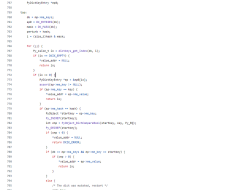
An unexpected change in the top programming languages list – C and C++ overthrow Java in popularity
According to the Tiobe programming languages index, the two programming languages C and C++ overthrow Java in popularity and are now aiming for Python as it is in first place on the Tiobe index. Java is currently ranked fourth in the TIOBE index after C++ overtook Java for the first time.
The Tiobe programming language index indicates that Python is in the first position whereas C and C++ have surpassed Java to take second and third place. Thus, Java is now in fourth place in the Tiobe index. According to Paul Jansen, CEO of Tiobe Software, a Dutch company that performs software quality testing, this is the first time C++ has surpassed Java in the Tiobe index and it’s the first time since 2001 that Java hasn’t been in the top three. “Java is suffering as C++ becomes more and more popular”, Jansen implies. Since the TIOBE index’s inception in 2001, this is the first time Java has not been among the top 3.
What is the Tiobe index?
The Netherlands-based TIOBE Software BV, which is based in Eindhoven, devised and maintains the TIOBE programming community index as a metric for programming language popularity. The index is determined by counting how many times the name of the language appears in search engine results. The index includes Wikipedia, YouTube, MSN, Yahoo!, Baidu, Google Blogs, and Google. Once every month, the index is updated. The long-term statistical data is for sale, while the current information is available for free. The index creators claim that it might be helpful while deciding on various strategic options. TIOBE does not offer data on, for example, the popularity of HTML because it concentrates on Turing complete languages.
The rise in popularity of C and C++:
With a 17.53% share in 2003, C++ reached a high and entered the top three programming languages. The release of C++20 is one factor that could be behind the renewed interest in C++.
This week, the Working Group 21 (WG21) of the International Organization for Standardization (ISO) C++ group approved the finished version of “C++20,” the first significant change to the programming language since C++17 from 2017 under its three-year release cycle. Thus, the popularity of C and C++ languages was raised.
Reasons for the rise in popularity:
- Legacy comes first and foremost. Since C has been around for a while, it is present in almost anything that has ever been labeled a computer.
- Moving on to portability, the earliest language that is usually regarded as cross-platform is C. The majority of the C source works identically on all platforms, even though it does need to be recompiled for the target platform.
- C has the most existing efficient libraries and source code due to its age and longevity. The most hyper-efficient way to do almost anything using C is already included in the STL library because it has been done and rewritten so many times.
- Raw performance – A large portion of C has been designed to operate extraordinarily quickly on 10MHz 8-bit systems with less than 640k RAM due to its age. Nothing can stop it when you throttle the same code via modern 4GHz 64-bit systems.
- Low-level accessibility – C offers native support for inline Assemblers for even higher optimization, which is again related to its age. No other language in existence offers the whole range from high-level abstraction to low-level control (with the obvious exception of C++).
- Then comes how it relates to machine language. Even seasoned programmers lack a true understanding of how a CPU executes their code because the majority of modern high-level languages push abstraction to such extremes.
- Contrarily, C’s mix of low-level control and high-level abstraction keeps programmers aware of the specifics of how a CPU works, resulting in better, quicker, and cleaner code.
Conclusion:
Because of all these reasons C and C++ programming languages are raising and increasing their popularity and they are now targeting Python to overtake them as it is in first place in the list.






